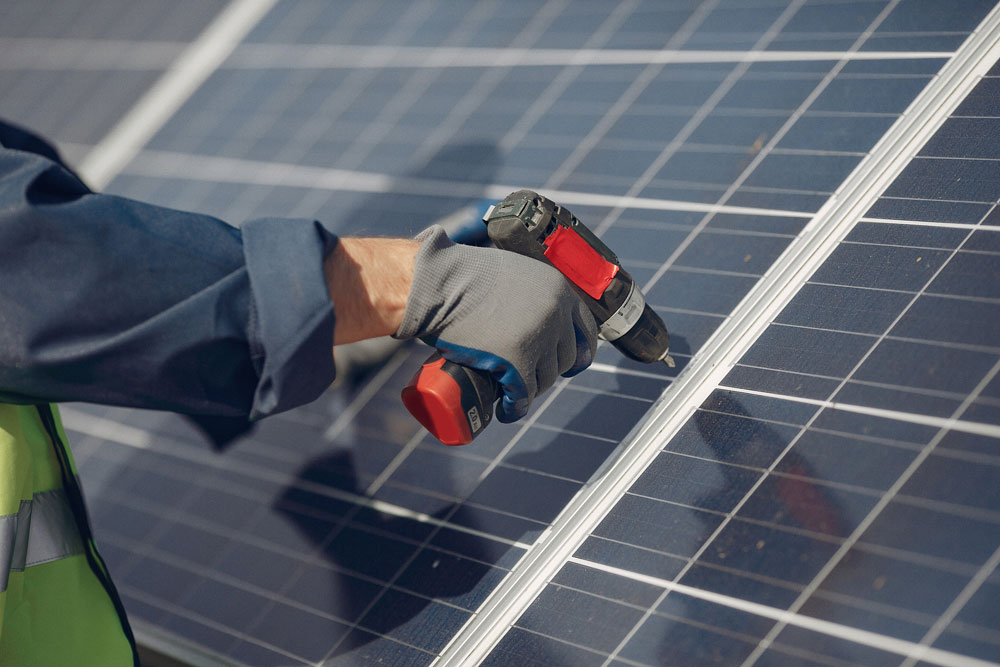Solar panel repair is a crucial aspect of maintaining a renewable energy system in your home or business. Whether it’s a minor issue or a major problem, knowing how to repair your solar panels can save you a lot of money and keep your system running efficiently. This blog will provide you with tips, guidelines, and cost considerations for repairing your solar panels. From basic maintenance to finding a reliable repair service, we will cover everything you need to know to keep your solar panels in top condition.
Understanding the Basics
Solar panels are designed to convert sunlight into electricity, and they are a vital component of any renewable energy system. However, like any other equipment, solar panels can experience wear and tear over time and may require repairs. Understanding the basics of solar panel repair can help you identify and fix any issues before they become more significant problems.
The first step in understanding solar panel repair is to know how solar panels work. They are made up of photovoltaic (PV) cells that convert sunlight into DC electricity. This electricity is then converted into AC electricity through an inverter, making it usable in your home or business.
Some common issues that may require solar panel repair include cracked or damaged cells, faulty wiring, and issues with the inverter. It is essential to identify these problems early on to prevent further damage to your system.
While some repairs can be done on your own, such as cleaning or tightening loose connections, more complex issues may require professional help. It is crucial to work with a qualified technician or company with experience in solar panel repair to ensure that your system is fixed correctly.
Regular maintenance and inspections can also help prevent the need for repairs. Cleaning your solar panels regularly and ensuring that they are free from debris and shading can help your system operate more efficiently and reduce the risk of damage.
Top Tips for Repairing Your Solar Panels
If you’re looking to repair your solar panels, there are several top tips that you should keep in mind to ensure that the job is done correctly and safely. Here are some of the most important tips for repairing your solar panels:
Safety First During Solar Panel Repair
Before starting any repairs, make sure that you turn off your solar system and disconnect it from the grid to avoid any electrical hazards.
Check For Warranty
If your solar panels are still under warranty, check the terms and conditions before attempting any repairs. Attempting DIY repairs on a panel that is still under warranty may void the warranty.
Identify the Problem
Carefully inspect your solar panels and identify the specific problem before attempting any repairs. This will help you determine whether you can handle the repair on your own or need to hire a professional.
Clean the Panels
Cleaning your solar panels regularly can help prevent damage and improve efficiency. Use a soft brush and a mild detergent to clean the panels and avoid abrasive materials that may scratch the surface.
Replace Damaged Cells
If you notice any cracks or damage to the cells, you may need to replace them. This is a delicate process that should be done by a professional to avoid damaging the panel.
Check Wiring
Faulty wiring can cause your solar system to malfunction. Check the wiring and connections for any damage, corrosion, or loose connections.
Test the System
Once the repairs are complete, test your solar system to ensure that it is functioning correctly. Check the output levels to make sure that they are consistent with the manufacturer’s specifications.
Finally, repairing your solar panels requires caution, attention to detail, and an understanding of the specific problem. If in doubt, it’s always best to seek professional help to ensure that your solar panels are repaired correctly and safely.
Reference: https://solardams.com/post/solar-panel-repair-tips-guidelines-and-repair-cost


